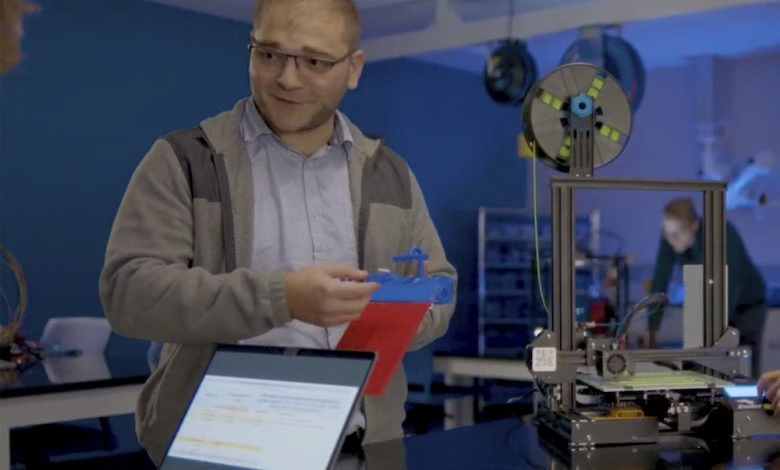A research team based out of Youngstown State University in Ohio has received just over $445k in funding from the U.S. National Science Foundation (NSF) to further investigate 3D printing materials and their fatigue behavior. The funding comes in the form of a “major research instrumentation grant”, which will enable the higher education institution to purchase the necessary tools and instrumentation to test 3D printed materials, including an Acumen 12 electrodynamic test system.
The material fatigue research project is being led by Alexander Pesch, Assistant Professor in the Rayen School of Engineering at Youngstown State, and also brings on talent from neighbouring universities, including Matthew Caputo, Associate Teaching Professor of Engineering at Penn State Shenango.
The testing equipment purchased with the grant money will be housed at a Youngstown State facility and will specifically be used to test the dynamic stiffness of 3D printed parts, to understand how much the materials succumb to force, and the lifetime of 3D printed materials put under force. A portion of the research project will focus on nickel-titanium shape memory alloys (SMAs), a group of metal materials that can be deformed and then recover their original shape.
 “Think of a metal coat hanger permanently deforming when it’s pulled and twisted,” Caputo explained. “If the coat hanger was made with nickel-titanium SMA, the coat hanger would return to its original state after being deformed.”
“Think of a metal coat hanger permanently deforming when it’s pulled and twisted,” Caputo explained. “If the coat hanger was made with nickel-titanium SMA, the coat hanger would return to its original state after being deformed.”
Nickel-titanium SMAs currently have been adopted in industries like aerospace and medical, which are using the innovative shape-shifting materials for products like aircraft wing components, surgical devices and dental implants. Notably, the material is not only known for its shape memory properties, it is also biocompatible and corrosion resistant.
Understandably, there is interest in 3D printing shape memory alloys, though the materials are still limited in terms of their use. “There has been some success [using additive manufacturing technology], but material fatigue, one of the most important aspects for applications, has yet to be fully explored,” Caputo continued. “Nickel-titanium happens to respond favorably to fatigue cycles. The focus of my work will be on creating 3D printed nickel-titanium parts using additive manufacturing technology and testing their fatigue responses.”
The advanced testing equipment will also be used to other ends. For instance, students from Youngstown State University and Penn State Shenango will have access to the machinery for their research, and local manufacturing businesses will also be welcomed to participate in R&D projects that involve students.
#researchawards #NSFAward #3DPrintingResearch #MaterialFatigue #ResearchGrant #Researcher #Analyst #Engineer #Technician #Coordinator #Specialist #Writer #Assistant #Associate #Biologist #Chemist #Physicist #Statistician #datascientist #consultant #Coordinator #researchscientist #seniorscientist #juniorscientist #postdoctoralresearcher #labtechnician
Visit Our Website : researchawards.net
Nomination link : researchawards.net/award-nomination
Registration link : researchawards.net/award-registration
Member link : researchawards.net/member-submission
Contact Us : contact@researchawards.net
Get Connected Here:
Social Media Link
Blogger : www.blogger.com/blog/posts/7416565241613113643
Twitter : x.com/View85515S
Pinterest : www.pinterest.com/sciencereviewer
Linkedin : www.linkedin.com/feed/?trk=404_page
You Tube : www.youtube.com/channel/UCAByV7Lha4_gObFc33DfgfQ

Comments
Post a Comment